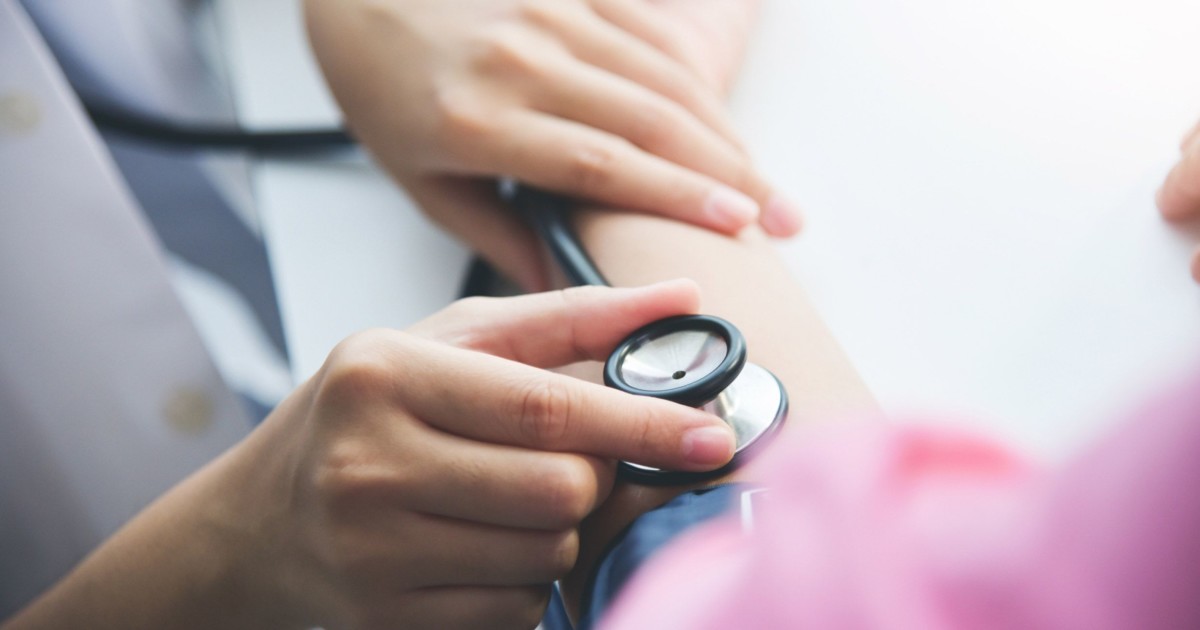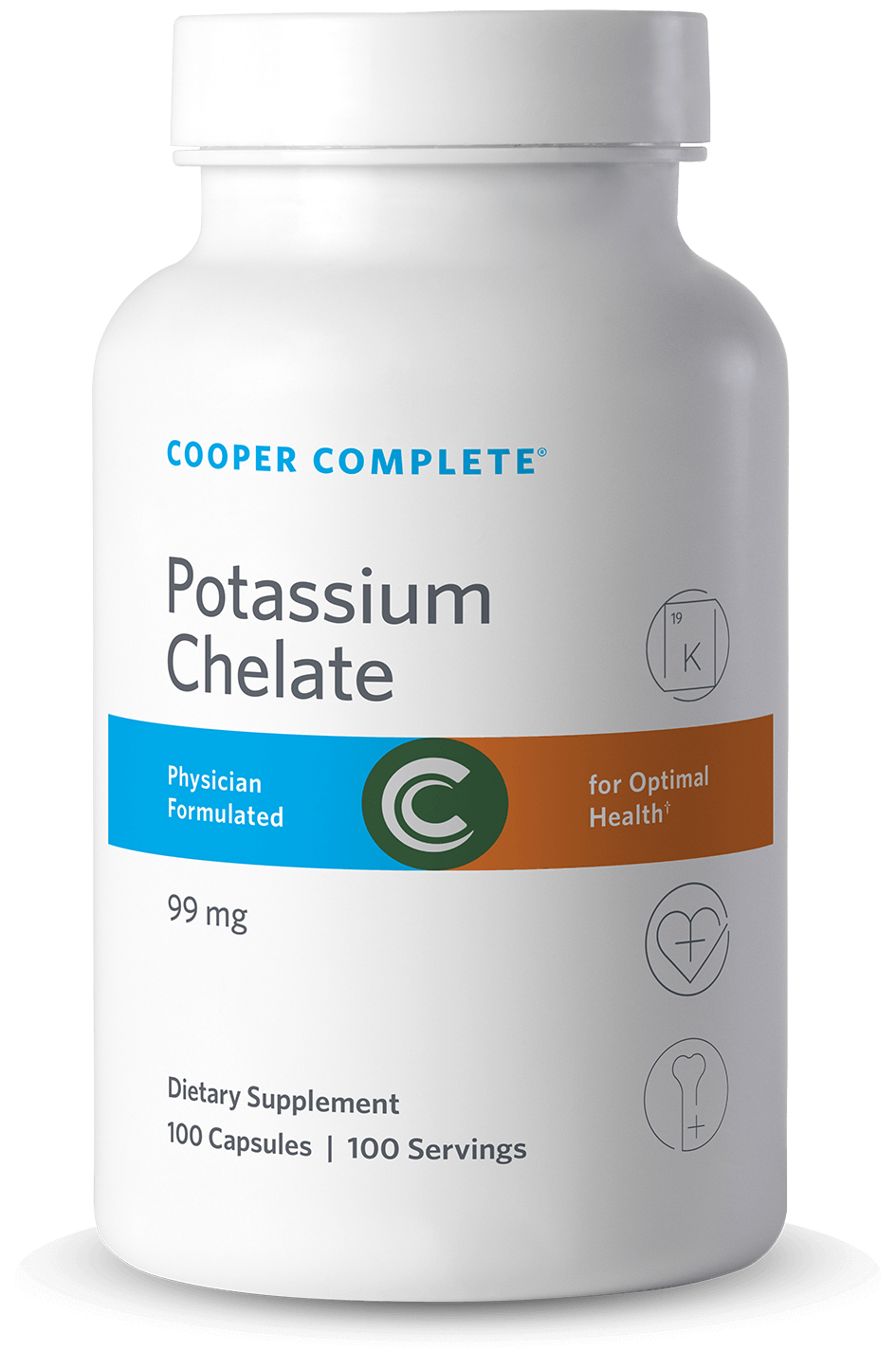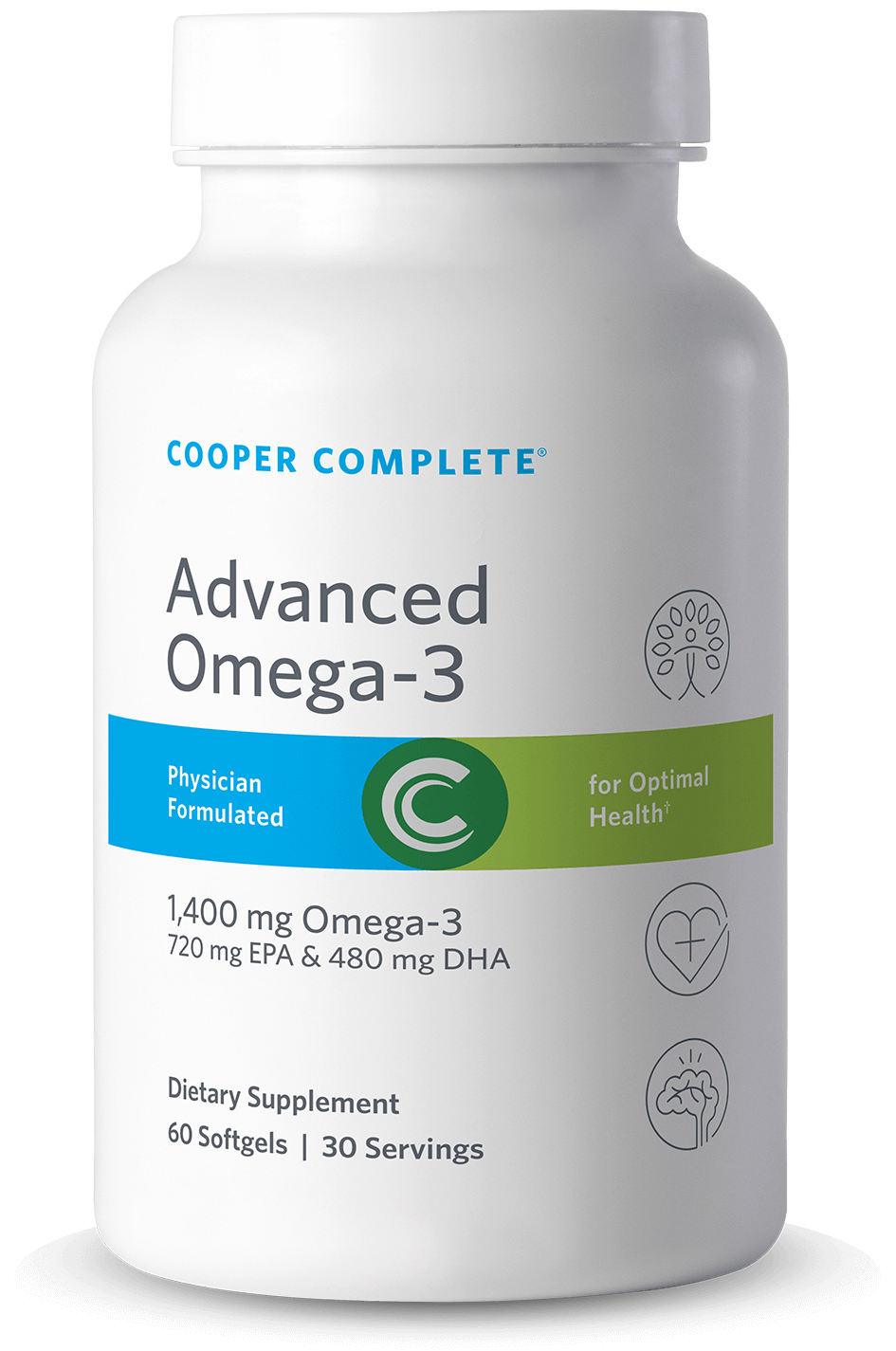Best Supplements to Lower Blood Pressure

Controlling blood pressure is an important daily task for many Americans. The American Heart Association estimates that more than 100 million U.S. adults have high blood pressure.
Fortunately, there are natural ways to help get high blood pressure under control. Making lifestyle changes such as eating a well-balanced diet, exercising regularly and reducing stress are proven methods to lower blood pressure.
There are key nutrient levels to monitor for heart health when eating a healthy diet. Nutrients including magnesium, potassium and omega-3 are some of the best supplements to lower blood pressure. Below we discuss these nutritional supplements and their role in lowering your blood pressure.
Magnesium to lower blood pressure
Generally, magnesium is important in helping regulate your blood pressure levels. Although the NIH has not found magnesium deficiency among the wider population, it notes older adults are likely to be at risk. A decrease in magnesium absorption due to aging is the primary cause. Because of this, further studies have tried to find specific links between magnesium and heart health.
For example, a published analysis in Hypertension looked at clinical trial results involving magnesium supplementation. Overall, researchers found significant results for people who consumed about 350 mg per day of magnesium. This group “significantly reduced systolic BP by 2.00 mm Hg and diastolic BP by 1.78 mm Hg.”
Blood Pressure Categories (AHA) |
|||
|---|---|---|---|
| Blood Pressure Category | Systolic mm Hg (upper number) | Diastolic mm Hg (lower number) | |
| Normal | Less Than 120 | and | Less Than 80 |
| Elevated | 120-129 | and | Less Than 80 |
| High Blood Pressure (Hypertension) Stage 1 | 130-139 | or | 80-90 |
| High Blood Pressure (Hypertension) Stage 2 | 140 or Higher | or | 90 or Higher |
| Hypertensive Crisis (consult your doctor immediately) | Higher than 180 | and/or | Higher than 120 |
An easy way to increase levels naturally is through diet. The usual suspects of leafy green vegetables, whole grains, low-fat milk and lean meats are good sources of magnesium. Cooper Complete Multivitamins are also a great way to ensure your body receives daily magnesium. In addition to a well-balanced diet, a Basic One Multivitamin provides 200 mg of magnesium, and the Original provides 660 mg per daily serving. Magnesium Glycinate supplement is non-laxative and gentle on the body and provides 120 mg of elemental magnesium per capsule for those who need additional magnesium in their diet.
Healthy lifestyle behaviors can modestly reduce blood pressure! Although many lifestyle behaviors only lower blood pressure a few points, a combination of behaviors and change can really add up. It’s possible you may be able to avoid taking medication (or reduce the amount taken) to manage hypertension.
Impact of Lifestyle Changes on Systolic Blood Pressure (SBP) |
||||
|---|---|---|---|---|
| Change | Intervention | Prescription | Approx. Impact on SBP Hypertension | Approx. Impact on SBP Normotension |
| Weight loss | Weight/body fat | The best goal is ideal body weight but aim for at least a 1-kg (2.2 lbs) reduction in body weight for most adults who are overweight. Expect about 1 mm Hg for every 1-kg reduction in body weight. | -5 mm Hg | -2/3 mm Hg |
| Healthy diet | DASH diet | Consume a diet rich in fruits, vegetables, whole grains, and low-fat dairy products, with reduced saturated and total fat. | -11 mm Hg | -3 mm Hg |
| Reduced intake of dietary sodium | Dietary sodium | Optimal goal is <1500 mg/d but aim for at least a 1000 mg/d reduction in most adults. | -5/6 mm Hg | -2/3 mm Hg |
| Enhanced intake of dietary potassium | Dietary potassium | Aim for 3500-5000 mg/d, preferably by consuming a diet rich in potassium. | -4/5 mm Hg | -2 mm Hg |
| Physical activity | Aerobic | 90-150 min/wk at 65-75% heart rate | -5/8 mm Hg | -2/4 mm Hg |
| Physical activity | Dynamic resistance | 90-150 min/wk 58-80% 1 rep maximum 6 exercises, 3 sets/exercise, 10 repetitions/set | -4 mm Hg | -2 mm Hg |
| Physical activity | Isometric resistance | 4 x 2 (hand grip), 1 min rest between exercises, 30-40% maximum voluntary contraction, 3 sessions/wk 8-10 wk | -5 mm Hg | -4 mm Hg |
| Moderation in alcohol intake | Alcohol consumption | In individuals who drink alcohol, reduce alcohol to Men ≤2 drinks/day Women ≤1 drink/day | -4 mm Hg | -3 mm Hg |
Potassium to balance out sodium
How potassium works with salt
A diet high in salt or sodium increases blood pressure. Limiting sodium in the diet is a common first step to lowering blood pressure. The AHA recommends the DASH diet to naturally lower blood pressure with food. One goal of the DASH diet is to balance out sodium and potassium intake levels better. Cooper Complete® Potassium Chelate Supplement contains 99 mg potassium to support already normal blood pressure, muscle-skeletal function, and nerve impulses.†
99 mg Potassium Chelate Supplement
Why is this balance important?
Potassium naturally works with sodium creating energy for the body to send signals along our nerves. Importantly, when the body is low in potassium, it tries to hoard it, which means hanging onto sodium. Water goes with sodium, and the body holds more water, increasing blood pressure. Knowing this, can increasing potassium intake lower blood pressure?
Finding a balance between potassium and salt levels
A study published in the New England Journal of Medicine analyzed over a hundred thousand people. Results indicated a link in the consumption of potassium and sodium for blood pressure. Interestingly, a direct association was found between nutrient levels related to systolic and diastolic blood pressure. As expected, a higher sodium consumption led to higher blood pressure. However, increasing potassium consumption was associated with lower blood pressure for all participants.
The recommended daily value of potassium is 4700 mg, with coffee, tea, nonalcoholic beverages and potatoes the top sources of potassium in American adults. Although bananas are seemingly the poster child for foods rich in potassium, a serving of dried apricots provides 1101 mg compared to a medium banana with 422 mg. Prunes and raisins are also good sources of potassium, as are lentils, kidney beans and soybeans.
On its own, just increasing potassium is only one step in lowering blood pressure. People who can combine this increase with a decrease in sodium intake are likely to decrease blood pressure further. Overall, eating a healthy and balanced diet is always the best way to improve blood pressure naturally.
(Bonus: See this article to learn more about how potassium is good for heart health.)
Supplements are also an option to ensure healthy potassium levels on days when high potassium foods are not available. Cooper Complete Original Multivitamin provides 400 mg of potassium in each daily serving of eight tablets. Potassium Chelate supplement contains 99 mg elemental potassium from potassium amino acid chelate in each capsule as a standalone supplement.
Omega-3 fatty acids to reduce hypertension
How EPA and DHA lower blood pressure
Eicosapentaenoic acid (EPA), docosahexaenoic acid (DHA) and alpha-linolenic acid (ALA) are the three primary omega-3 fatty acids. ALA is a plant-based omega-3, while EPA and DHA omega-3 fatty acids come from fattier fish like salmon, sardines, anchovies, tuna, seaweed, and algae. One of the most tested nutrients, omega-3, has had tens of thousands of studies on its effects on health. On the topic of blood pressure, there have been many tests to try and reveal links. So much so that one group of researchers decided to analyze the results of seventy previous studies on this topic. Advanced Omega 3 Supplement contains 720 mg EPA, 480 mg DHA, and 200 mg other omega-3 fatty acids in each serving of two lemon-flavored softgels. Omega 3 supplementation supports heart health, cognition, immune, and inflammatory health without any fishy aftertaste.†
Advanced Omega-3 Supplement
The studies measured blood pressure using either food or fish oil while controlling for EPA and DHA consumption. The results showed that consuming two or more grams of EPA and DHA reduced both Systolic and Diastolic blood pressure, with the most significant reductions in unmedicated adults with high blood pressure. In addition, the results found consuming at least one gram and less than two grams of EPA and DHA reduced Systolic but did not change Diastolic blood pressure.
A 2022 systematic review and meta-analysis of 71 trials involving almost 5000 adults taking 1.3 – 3.6 grams EPA and DHA daily also found two or more grams EPA and DHA optimal. In their conclusion, researchers noted that “an optimal dose of 3 g/d in overall and subgroup analyses may yield the greatest BP-lower performance.”
Improving the ability to exercise with omega-3
As previously mentioned, exercise is a key tool to control blood pressure. Consuming EPA and DHA from omega-3-rich food or omega-3 supplements also positively impacts athletic performance. Along with diet, an exercise program is an important tool in controlling blood pressure levels. Forty-four participants completed a study measuring effects of omega-3 supplementation and exercise performance. In contrast to those not taking omega-3 supplements, participants who did had improved thigh muscle volume, handgrip strength and improved isokinetic power. Finally, researchers concluded that fish oil “slows the normal decline in muscle mass and function in older adults and should be considered a therapeutic approach for preventing sarcopenia and maintaining physical independence in older adults.”
Fish oil high in omega-3 fatty acids plays an important part in improving heart and overall health. The AHA recommends eating at least 2000 mg of omega-3 in fatty fish per week. For those who may not eat this amount every week, the Cooper Complete Advanced Omega-3 supplement contains 1200 mg of EPA and DHA in each daily serving.
(Bonus: See this article for five key omega-3 takeaways regarding heart health from Cooper Clinic cardiologist Nina Radford, MD.)
Your physician understands your health profile best, so it’s important to talk with them when taking dietary supplements to lower blood pressure.
